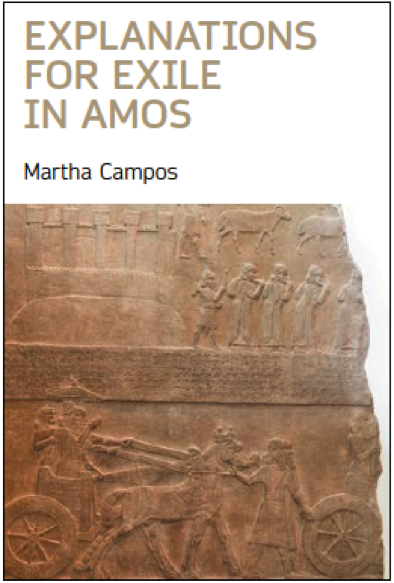Sale
Explanations for Exile in Amos
Published: July 2021
Original price was: £60.00.£25.00Current price is: £25.00.
In four places, Amos announces Israel's coming exile to Assyria: 4.1-3, 5.25-27, 6.1-14 and 7.7-17. It will be Yahweh's punishment for social injustice. But who is to blame?
Most scholars think it is the women (and men) of the mid-eighth-century BCE Israelite upper class. Not so, says Campos. It is the kings who are the culprits. Kings should champion social justice, as we know from ancient Near Eastern texts and biblical books like Jeremiah, and the endurance of the kingship depends on their upholding justice. Kings must also remain loyal Yahwists, and keep clear of alliances with foreign powers. The kingship has failed on these counts.
In this forensic overturning of time-honoured readings of Amos's oracles, and with a fresh eye for his metaphors, Martha Campos outs the successors of Jeroboam (7.9) as the cows of Bashan (4.1), manufacturers of images for non-Yahwistic worship, especially of Ninurta/Sakkuth (5.26), lounging on couches at their banquets (6.4). And Amos himself is a tin wall (7.8), strong enough to fend off the arrows of his opponents.
Explanations for Exile will be a breath of fresh air for scholars and students of the prophet Amos.
Sale
Explanations for Exile in Amos
Original price was: £60.00.£25.00Current price is: £25.00.
In four places, Amos announces Israel's coming exile to Assyria: 4.1-3, 5.25-27, 6.1-14 and 7.7-17. It will be Yahweh's punishment for social injustice. But who is to blame?
Most scholars think it is the women (and men) of the mid-eighth-century BCE Israelite upper class. Not so, says Campos. It is the kings who are the culprits. Kings should champion social justice, as we know from ancient Near Eastern texts and biblical books like Jeremiah, and the endurance of the kingship depends on their upholding justice. Kings must also remain loyal Yahwists, and keep clear of alliances with foreign powers. The kingship has failed on these counts.
In this forensic overturning of time-honoured readings of Amos's oracles, and with a fresh eye for his metaphors, Martha Campos outs the successors of Jeroboam (7.9) as the cows of Bashan (4.1), manufacturers of images for non-Yahwistic worship, especially of Ninurta/Sakkuth (5.26), lounging on couches at their banquets (6.4). And Amos himself is a tin wall (7.8), strong enough to fend off the arrows of his opponents.
Explanations for Exile will be a breath of fresh air for scholars and students of the prophet Amos.


Amos and Micah
Amos and Micah